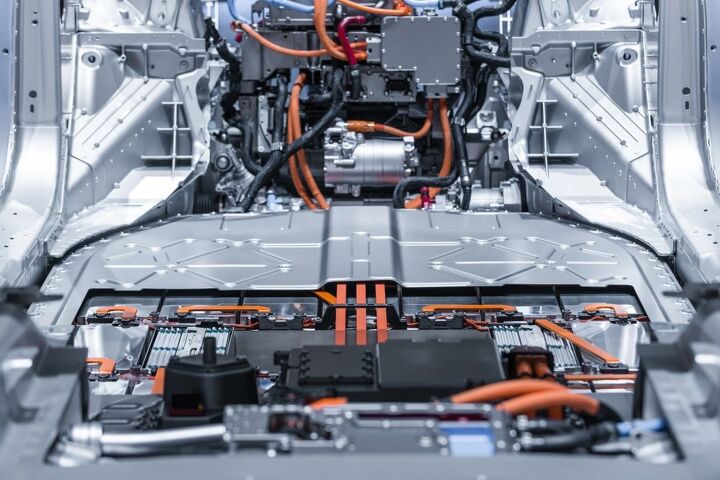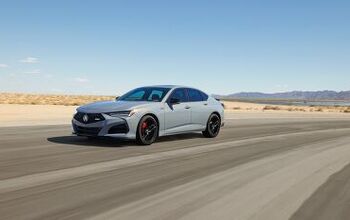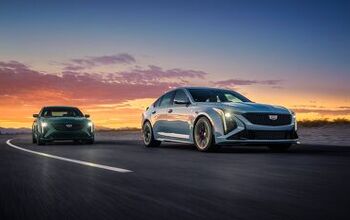Disrupting the Industry: Korean Battery Suppliers at Each Other's Throats

While the automotive industry continues cleaning itself up via electrification and moral corporate messaging, most aspects of doing business have remained decently dirty. For all this striving for a utopian society, businesses still don’t like losing money and will go to great lengths to screw over the competition.
South Korean battery suppliers SK Innovation and LG Chem are currently clawing at each other like a couple of mad tigers. SK managed to secure a contract to supply Volkswagen Group with EV batteries, leading to the construction of a $1.7 billion factory in Georgia. LG did not, leading to a lawsuit. Both automakers and analysts are worried the litigation is spinning out of control, and could effectively obliterate their ability to do business in the United States.
Considering there have already been battery supply issues for low-volume EVs, conflict between suppliers has everyone worried about the future. With so many electric models on the horizon, nobody expects demand to go anywhere but up.
LG Chem took SK to court last April, claiming it had been misappropriating trade secrets and may have poached some important staffers to get the deal with VW. Now they’re basically flinging every patent infringement claim they can at each other and actively trying to ban the importation and sale of EV batteries in the United States. According to Reuters, the list of potentially impacted vehicles includes the Audi E-Tron, Kia Niro, Chevy Bolt, Ford’s upcoming electric pickup, Jaguar’s I-Pace, and every EV manufactured by Volkswagen Group in Tennessee.
From Reuters:
“Whoever loses the fight would suffer a fatal blow, unless the two reach a settlement. This will also be a setback for automakers,” said Cho Jae-phil, a professor at Ulsan National Institute of Science and Technology who worked previously at another Korean rival, Samsung SDI.
Ford spokeswoman Jennifer Flake said it was encouraging LGC and SKI to resolve their conflict without litigation and that it believed there was sufficient demand for multiple suppliers.
“We are aware of the issue. As a normal course of action, we have business continuity plans in place to protect our interests,” Flake said in an emailed statement to Reuters.
GM spokesman Patrick Morrissey said the company was aware of the dispute and at this point it did not expect any impact on the production of its Chevy Bolt electric vehicle.
Korea’s SNE Research believes the battery market will grow by 23 percent each year, reaching a value of $167 billion by 2025. That’s more than enough meat for companies to share. Unfortunately, that won’t be an option if one or both of the nation’s largest suppliers lose their cases.
If the U.S. International Trade Commission (ITC) rules in favor of LG Chem on June 5th, then SK International won’t be able to legally supply VW with product in 2022. It may not even bother to finish the factory in Georgia. According to documents obtained by Reuters on Wednesday, the ITC’s investigative staff currently recommends a motion favoring LGC as it is “the most appropriate sanction for Respondents’ (SK) widespread spoliation of evidence.” A final decision should be made in fall of next year, unless the feuding pair can reach a mutually beneficial agreement.
[Image: Sergii Chernov/Shutterstock]

A staunch consumer advocate tracking industry trends and regulation. Before joining TTAC, Matt spent a decade working for marketing and research firms based in NYC. Clients included several of the world’s largest automakers, global tire brands, and aftermarket part suppliers. Dissatisfied with the corporate world and resentful of having to wear suits everyday, he pivoted to writing about cars. Since then, that man has become an ardent supporter of the right-to-repair movement, been interviewed on the auto industry by national radio broadcasts, driven more rental cars than anyone ever should, participated in amateur rallying events, and received the requisite minimum training as sanctioned by the SCCA. Handy with a wrench, Matt grew up surrounded by Detroit auto workers and managed to get a pizza delivery job before he was legally eligible. He later found himself driving box trucks through Manhattan, guaranteeing future sympathy for actual truckers. He continues to conduct research pertaining to the automotive sector as an independent contractor and has since moved back to his native Michigan, closer to where the cars are born. A contrarian, Matt claims to prefer understeer — stating that front and all-wheel drive vehicles cater best to his driving style.
More by Matt Posky
Latest Car Reviews
Read moreLatest Product Reviews
Read moreRecent Comments
- W Conrad I'm not afraid of them, but they aren't needed for everyone or everywhere. Long haul and highway driving sure, but in the city, nope.
- Jalop1991 In a manner similar to PHEV being the correct answer, I declare RPVs to be the correct answer here.We're doing it with certain aircraft; why not with cars on the ground, using hardware and tools like Telsa's "FSD" or GM's "SuperCruise" as the base?Take the local Uber driver out of the car, and put him in a professional centralized environment from where he drives me around. The system and the individual car can have awareness as well as gates, but he's responsible for the driving.Put the tech into my car, and let me buy it as needed. I need someone else to drive me home; hit the button and voila, I've hired a driver for the moment. I don't want to drive 11 hours to my vacation spot; hire the remote pilot for that. When I get there, I have my car and he's still at his normal location, piloting cars for other people.The system would allow for driver rest period, like what's required for truckers, so I might end up with multiple people driving me to the coast. I don't care. And they don't have to be physically with me, therefore they can be way cheaper.Charge taxi-type per-mile rates. For long drives, offer per-trip rates. Offer subscriptions, including miles/hours. Whatever.(And for grins, dress the remote pilots all as Johnnie.)Start this out with big rigs. Take the trucker away from the long haul driving, and let him be there for emergencies and the short haul parts of the trip.And in a manner similar to PHEVs being discredited, I fully expect to be razzed for this brilliant idea (not unlike how Alan Kay wasn't recognized until many many years later for his Dynabook vision).
- B-BodyBuick84 Not afraid of AV's as I highly doubt they will ever be %100 viable for our roads. Stop-and-go downtown city or rush hour highway traffic? I can see that, but otherwise there's simply too many variables. Bad weather conditions, faded road lines or markings, reflective surfaces with glare, etc. There's also the issue of cultural norms. About a decade ago there was actually an online test called 'The Morality Machine' one could do online where you were in control of an AV and choose what action to take when a crash was inevitable. I think something like 2.5 million people across the world participated? For example, do you hit and most likely kill the elderly couple strolling across the crosswalk or crash the vehicle into a cement barrier and almost certainly cause the death of the vehicle occupants? What if it's a parent and child? In N. America 98% of people choose to hit the elderly couple and save themselves while in Asia, the exact opposite happened where 98% choose to hit the parent and child. Why? Cultural differences. Asia puts a lot of emphasis on respecting their elderly while N. America has a culture of 'save/ protect the children'. Are these AV's going to respect that culture? Is a VW Jetta or Buick Envision AV going to have different programming depending on whether it's sold in Canada or Taiwan? how's that going to effect legislation and legal battles when a crash inevitibly does happen? These are the true barriers to mass AV adoption, and in the 10 years since that test came out, there has been zero answers or progress on this matter. So no, I'm not afraid of AV's simply because with the exception of a few specific situations, most avenues are going to prove to be a dead-end for automakers.
- Mike Bradley Autonomous cars were developed in Silicon Valley. For new products there, the standard business plan is to put a barely-functioning product on the market right away and wait for the early-adopter customers to find the flaws. That's exactly what's happened. Detroit's plan is pretty much the opposite, but Detroit isn't developing this product. That's why dealers, for instance, haven't been trained in the cars.
- Dartman https://apnews.com/article/artificial-intelligence-fighter-jets-air-force-6a1100c96a73ca9b7f41cbd6a2753fdaAutonomous/Ai is here now. The question is implementation and acceptance.


































Comments
Join the conversation
@65corvair--Agree. Why not be thankful for a Korean battery company and a German car company putting a major amount of manufacturing in the U.S. I am not so worried about the US running out of oil and natural gas. The biggest issue is not supply but pollution in major metropolitan areas. Nuclear power would be the solution to producing more electricity especially since the US has the largest supply of Uranium which we as a country use very little of and export most of our supply. Getting battery technology to where it is smaller, cheaper, and longer range along with more infrastructure to support EVs will take time. Instead of fighting each other we need to count our blessings and work together to utilize our resources which we have been blessed with.
I feel that automakers saying, “We will deliver hundreds of thousands of EV's five years from now!” is cart-before-the-horse talk. Where is the announcement from our domestics that factory lines currently building transmissions and ICE components are going to be transitioned to battery manufacture? This needs to be a parallel component of the plan. VW's new Salzgitter battery plant prevents them from being held economically "hostage" in the future by independent battery manufacturers.